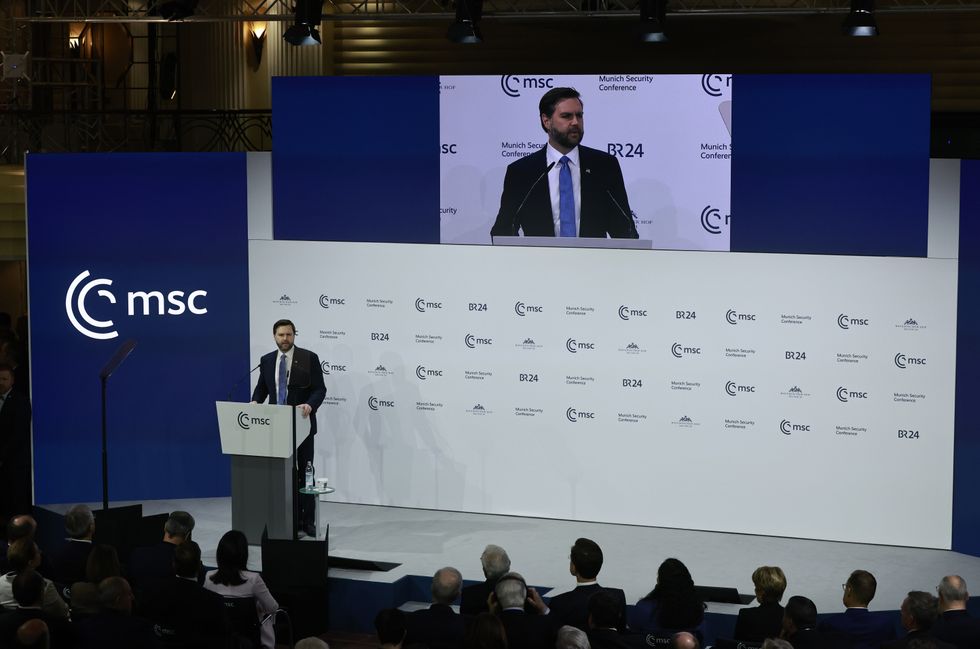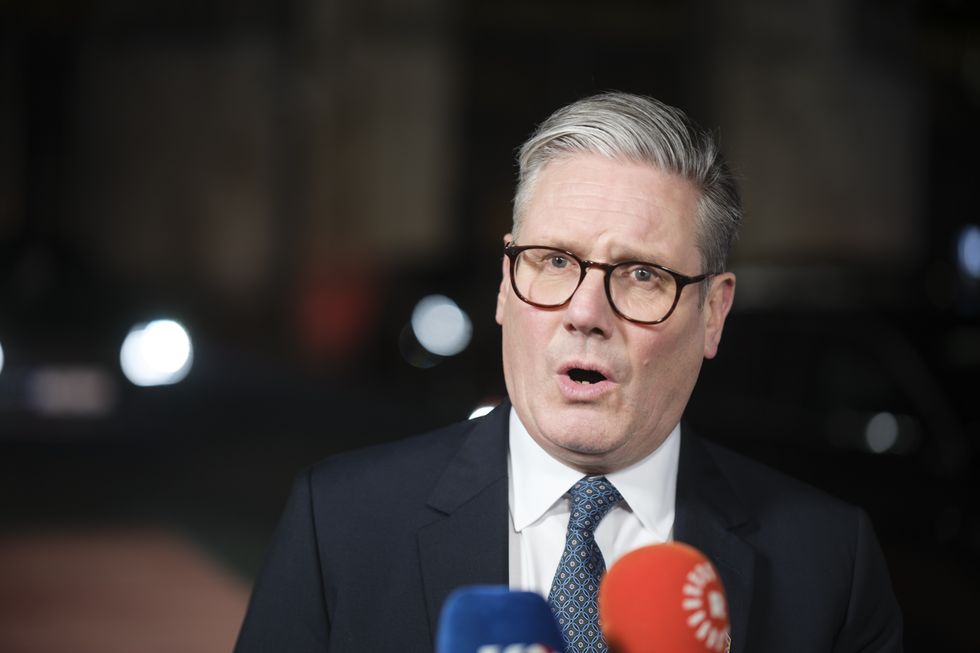'I started cheering': Michael Portillo shares reaction to JD Vance's speech that …
GB News
OPINION: JD Vance's Munich Security Conference speech was a call to action that Europe needed, says Lee Cohen.
Don't Miss
Most Read
Trending on GB News
JD Vance’s speech at the Munich Security Conference wasn’t designed to win favor with Europe's political elite. Rather, it was a bold challenge to a continent that has lost its direction—and its backbone. His words were a wake-up call to a Europe adrift, caught in cultural self-doubt, political inertia, and an identity crisis threatening its future. For Britain, Vance’s message is especially significant, offering a challenge to avoid Europe’s pitfalls and reclaim a global role rooted in sovereignty, strength, and democratic integrity—if only Britain had leadership willing to put Britain first. A big “if,” I concede.
At the heart of Vance’s address was Europe’s existential crisis. He was unafraid to expose the Continent as it is, mired in censorship, insecurity, and democratic decline. His critique was scathing, revealing a Europe that has traded courage for consensus and conviction for complacency.
Vance’s warning on free speech was particularly stark. In Europe, the once-sacred principle of free expression is increasingly sacrificed in the name of social harmony. Incidents like the Koran burnings in Stockholm and Germany’s threats to social media platforms reveal a troubling trend: European governments dictating what can and cannot be said, stifling dissent under the guise of maintaining public order. This isn’t a minor slip—it's an alarming slide toward authoritarianism, where the state polices thought and expression.
The irony is striking. In their pursuit of "social cohesion," European leaders are undermining the very foundation of liberal democracy. Vance’s message was clear: A continent that fears free speech is a continent that has lost confidence in its own values. If Europe cannot defend the right to offend, challenge, or provoke, it has surrendered to forces of cultural conformity and intellectual stagnation.

JD Vance criticised Europe's immigration policy and they fail to control borders.
Getty Images
Vance also made a blunt assessment of Europe’s immigration policies. The unchecked influx of migrants has strained public services and jeopardised public safety. The attacks in Grenoble, Munich, Brussels, and the murder in Paris are not isolated incidents but tragic outcomes of political negligence and ideological dogma.
European leaders, shackled by political correctness, have failed to secure their borders or ensure meaningful integration. Worse still, they have dismissed legitimate public concerns as xenophobia, deepening societal divisions. Vance’s message was unequivocal: A continent that cannot defend its borders cannot defend its people.
Equally sharp was Vance’s critique of the European Union’s retreat from democracy. Increasingly, the EU operates as a technocratic oligarchy, imposing decisions from Brussels without genuine public debate or consent. From immigration quotas to regulatory overreach, the divide between European citizens and their so-called representatives has never been wider.
The EU’s contempt for national sovereignty, exemplified by its punitive stance on Brexit, reflects a broader disregard for democracy itself. By centralizing power and sidelining public opinion, the EU has become an institution that governs without the governed. Vance’s call for democratic accountability wasn’t just rhetorical—it was a demand for legitimacy in an era of growing public disillusionment.
For Britain, Vance’s speech is both a warning and an opportunity. As Europe falters, post-Brexit Britain has a chance to assert itself as a leader in the Anglosphere—defending democratic values, free speech, and sovereignty. But this requires clear-eyed vision and courage it seems is lacking in Starmer’s government —the courage to fulfill the promise of Brexit and carve out an independent path.

Labour is not maintaining the British spirit of defending free speech.
Getty Images
Britain’s historical and cultural ties to the Anglosphere are undeniably stronger than those with continental Europe. After Brexit, the UK can and must strengthen its alliances with the US, Canada, Australia, and New Zealand. This is not about retreating from Europe, but about leading a global coalition rooted in freedom, democracy, and the rule of law.
Vance’s emphasis on sovereignty holds particular relevance for Britain. Having regained independence from the EU, the UK should naturally resist the misguided temptation shared by Labour to re-engage with mechanisms that undermine national authority. This includes maintaining strong immigration controls, protecting the legal system from external interference, and ensuring trade agreements serve British interests—not supranational agendas.
If there is one area where Britain should lead by example and legacy, it is in defending free speech. The pivotal 1689 Bill of Rights established freedom of speech within Parliament. Tragically the current Labour government has not maintained this spirit. Mercifully, organisations like the inspirational Free Speech Union are stepping up. May they prosper robustly.
As Vance's remarks demonstrate, many of us Americans feel strongly that our great mother country must reaffirm its cultural identity as a confident expression of its heritage and values—values that were once the envy of and a model for the world.
Vance’s speech wasn’t just a critique of Europe’s failures; it was a necessary call to action. Europe is at a crossroads, and Britain—standing independently post-Brexit—has a chance to escape its trajectory. But that will require more than words—it will require action that, it seems tragically, will likely need to wait for a change of government.







